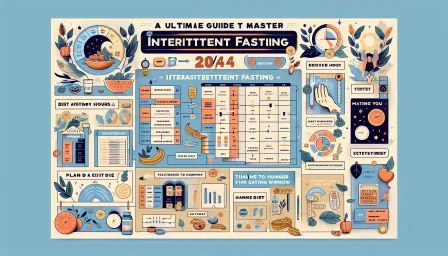How a Vegan Diet Can Help Manage Diabetes: A Comprehensive Guide

Discover how a vegan diet can help manage diabetes. Learn about the benefits, dietary tips, and scientific evidence supporting plant-based nutrition for diabetes control.
Diabetes is a chronic condition affecting millions worldwide, and effective management is essential for maintaining a quality life. Various strategies are available, and one that has gained substantial attention is the vegan diet. In this comprehensive guide, we explore how a vegan diet can help manage diabetes, provide valuable dietary tips, and review the scientific evidence supporting plant-based nutrition for diabetes control.
Understanding Diabetes
Diabetes is classified into two main types: Type 1 and Type 2. Both types are associated with elevated blood sugar levels due to the body's inability to produce or effectively use insulin. Proper management often includes lifestyle changes, medication, and dietary adjustments.
What Is a Vegan Diet?
A vegan diet excludes all animal products, including meat, dairy, eggs, and even honey. It focuses on plant-based foods such as fruits, vegetables, grains, nuts, and seeds. This diet is rich in fiber, vitamins, and antioxidants while typically being lower in saturated fats and cholesterol.
Benefits of a Vegan Diet for Managing Diabetes
1. Improved Blood Sugar Control
Studies have shown that a vegan diet can help stabilize blood sugar levels. Plant-based foods are often lower on the glycemic index, leading to slower and more controlled blood sugar spikes. Additionally, the high fiber content in a vegan diet aids in regulating glucose absorption, promoting better blood sugar management.
2. Weight Management
Maintaining a healthy weight is crucial for managing diabetes. A vegan diet is generally lower in calories and high in nutrient density, which can help with weight loss and maintenance. Weight reduction improves insulin sensitivity, which is particularly beneficial for individuals with Type 2 diabetes.
3. Cardiovascular Health
Diabetes significantly increases the risk of cardiovascular diseases. A vegan diet is associated with lower levels of bad cholesterol (LDL) and higher levels of good cholesterol (HDL). This dietary pattern reduces the risk factors for heart disease, providing an added benefit for people with diabetes.
4. Anti-Inflammatory Properties
Chronic inflammation is linked to insulin resistance and the progression of diabetes. Plant-based diets are rich in anti-inflammatory compounds, such as antioxidants, vitamins, and minerals, which can help reduce inflammation and improve insulin function.
Scientific Evidence Supporting Vegan Diet and Diabetes Control
Numerous studies have been conducted to investigate the impact of a vegan diet on diabetes management:
Research Findings
- A 2006 study published in "Diabetes Care" found that a low-fat vegan diet improved glycemic control and cardiovascular risk factors in individuals with Type 2 diabetes.
- The "Journal of Geriatric Cardiology" highlighted that a plant-based diet could significantly improve diabetes-related outcomes compared to standard dietary recommendations.
- Research by the Physicians Committee for Responsible Medicine (PCRM) has demonstrated that a vegan diet can be as effective, if not more so, than traditional diabetes diets in managing blood sugar levels.
Practical Tips for Adopting a Vegan Diet for Diabetes Management
1. Plan Balanced Meals
Ensure that your meals include a variety of foods to cover all essential nutrients. Emphasize whole grains, legumes, fruits, vegetables, nuts, and seeds.
2. Monitor Your Carbohydrate Intake
Though plant-based foods are healthy, some are high in carbohydrates. Monitor your intake and opt for complex carbs such as those found in whole grains and vegetables.
3. Prioritize Protein Sources
Include a variety of protein-rich foods like beans, lentils, tofu, tempeh, and quinoa. These not only provide protein but also other essential nutrients and fiber.
4. Stay Hydrated
Proper hydration is critical for overall health and can assist in managing blood sugar levels. Aim to drink adequate water throughout the day.
5. Supplement Wisely
Some nutrients, such as Vitamin B12, may be deficient in a vegan diet. Consider supplements or fortified foods to meet your nutritional needs.
6. Consult a Healthcare Professional
Before making significant dietary changes, consult with a healthcare provider or a registered dietitian, especially to tailor the vegan diet to your specific needs and health conditions.
Challenges and Solutions
Adopting a vegan diet may come with challenges, but these can be overcome with proper strategies:
1. Social Situations
Eating out or attending social events can be tough. Plan ahead by researching vegan-friendly options or bringing a vegan dish to share.
2. Nutritional Deficiencies
Being mindful of nutrient intake is crucial. Regularly check your nutrient levels and consider fortified foods or supplements where necessary.
3. Cravings for Non-Vegan Foods
Transitioning to a vegan diet might lead to cravings for familiar non-vegan foods. Exploring plant-based alternatives and experimenting with recipes can help satisfy these cravings.
Conclusion
A vegan diet offers numerous benefits for managing diabetes, from improving blood sugar control to supporting cardiovascular health. While adopting this diet may require effort and planning, the advantages make it a compelling option for those looking to manage their diabetes effectively. If you're considering a vegan diet, consult with healthcare professionals to ensure it aligns with your medical needs and lifestyle.



























